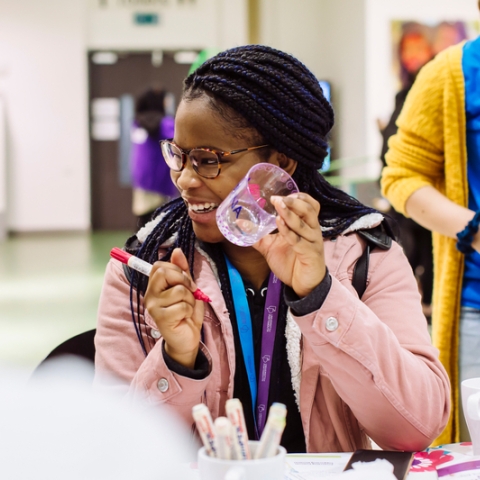There are a variety of factors which can contribute to sleep problems, including noise, late nights, and variable routines. For some people, sleep difficulties can trigger or accompany more serious issues such as stress, anxiety, low mood or depression.
If you are having persistent difficulties with sleep then it is advisable to seek help. Consult your GP if your daily functioning is significantly affected and let your personal tutor or course leader know if your difficulties are affecting your studies.
For good health and wellbeing, it is important to try to develop healthy routines, with regular meals, exercise and sleep times. You can learn skills to help you tackle sleep problems, and there is a lot of advice and other support available.
Useful resources for sleep
Mind >
Information on the connection between sleep and mental health, and practical suggestions and information on where to get support
National Sleep Helpline >
Speak to trained sleep advisers on Monday, Tuesday and Thursday evenings, or some mornings.
Student Space >
Tips on how to improve your sleep, during the day, in the evening and when getting ready for bed.
More wellbeing help
Take a look at our other resources and sources of support for help with everything - from issues with alcohol, to healing from trauma.
Contact the Student Wellbeing Service
Access mental health support and guidance from our friendly team of wellbeing advisers, counsellors and advisers:
Or you can contact us via:
- +44 (0)23 9284 3466
- The Bateson Centre, The Mary Rose St, Portsmouth, PO1 2BL
- wellbeing-admin@port.ac.uk
You can also find us on Instagram and Facebook.
Worried about a student? Whether you're a friend, member of University staff, family member or medical professional you can raise a concern so our service can help.




